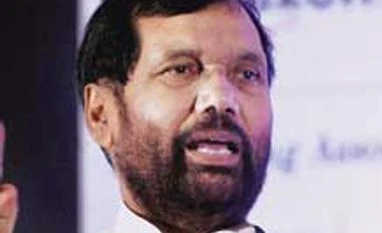Under the Act, each eligible person gets 5 kg of rice at Rs 5 a kg or wheat at Rs 3 a kg or coarse cereals at Re 1 a kg a month. In the existing Antyodaya Anna Yojana , targeting the poorest of the poor, an eligible household continues to get 35 kg foodgrain a month.
“We have no such proposal to increase the allocation of subsidised foodgrain, though we have sufficient stocks to supply more under the Public Distribution System,” Paswan told reporters here.
Also Read
The minister was reacting to some reports in a section of the media, which stated that the government was planning to raise the allocation under NFSA, which could increase the annual food subsidy burden.There are demands from various states, including Gujarat, to increase the foodgrain allocation to at least 7 kg a person a month from 5 kg, he said.
Paswan said, “7 kg foodgrain per person can be supplied through PDS but this would put pressure on the food subsidy bill.”
The requirement of foodgrain under the PDS is about 61 million tonnes, while the government has storage capacity of 75.8 million tonnes and the country’s overall rice and wheat output is about 200 million tonnes, he added.
On progress made in implementation of the food law, Paswan said currently only five states have, so far, fully implemented it and another six others have rolled out partially. As many as 25 states and Union Territories are yet to implement the Act.
“We have given three months more, till October, to implement the food law. No states have said they will not implement it but they are seeking more time,” he said.
In September last year, Parliament had passed NFSA that gave legal entitlement to highly subsidised foodgrain to two-thirds of the country’s population. Before that, an ordinance was issued in July 2013.
India is already at loggerheads with the World Trade Organization over its decision to veto a landmark global accord because it wanted more attention paid to its demand for stockpiling subsidised crops to ensure security of supplies.
In a filing earlier this month, India disclosed that it spent $56 billion on farm support and food stockpiling in 2010-11, arguing that it was conforming to agreed limits on agricultural subsidies.
India’s veto has derailed implementation of the WTO Trade Facilitation Agreement struck last year in Bali that would have simplified and standardised procedures for moving goods across borders.
The deal was the most significant achievement in the WTO’s 19-year history. According to some estimates, it would have added $1 trillion and 21 million jobs to the world economy.



)